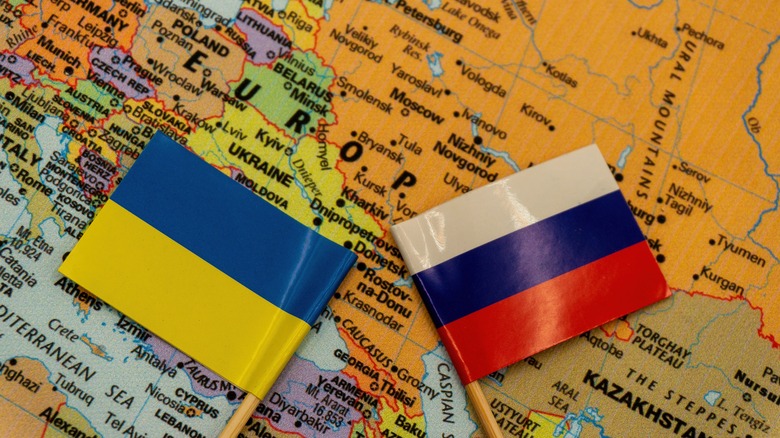Why The Ukraine Grain Agreement Is Already Being Threatened
Last week, Russia and Ukraine signed a deal agreeing that Ukraine could export its grain via shipments through the Black Sea. It was supposed to relieve the food crisis that emerged when Ukraine could no longer supply other countries with its grain. However, a Russian attack upon the Ukrainian Black Sea port city of Odesa has put the strength of that deal into doubt (per NPR).
"We stated before the deal that without fixed, reliable guarantees of security, it's not going to work," Taras Vysotsky, Ukraine's deputy agriculture minister, said while calling upon the United Nations to clearly define what does and does not violate the agreement.
According to BBC, the port itself was not significantly damaged by the missile strike. Paul Adams, a world affairs correspondent for the BBC, suspects that this will form the basis of Russia's argument that this does not violate the terms of the agreement, since the agreement states that Russia will not attack merchant vessels or the port itself.
The agreement is of utmost importance
The deal, which was signed only on Friday, needed to alleviate the global wheat shortage. Ukraine and Russia produce a large percentage of the wheat that appears on the global market.
Robert Mardini, director general of the International Committee of the Red Cross, listed for The Guardian a series of countries hurt by the disruption that the invasion of Ukraine brought: "Our market monitoring, over the past six months has seen the price of food staples rise by 187% in Sudan, 86% in Syria, 60% in Yemen, 54% in Ethiopia, as compared to the same time period last year."
Even when it was signed, however, some were skeptical that it meant anything. Darin Newsom, a veteran commodities analyst, told Foreign Policy the view shared between him and U.S. officials is that "How can you build any sort of reliability into any agreement or any type of deal with Russia?" Moreover, until trade flows normally out of Ukraine, it is unlikely that the market will recover.
Additionally, Russia is making overtures to nations hurt by the grain shortage (per BBC). Claiming that the West is simply trying to impose its version of the world order, Sergei Lavrov, Russia's Foreign Minister, is vying for sympathy amongst countries that have been damaged by the invasion.

